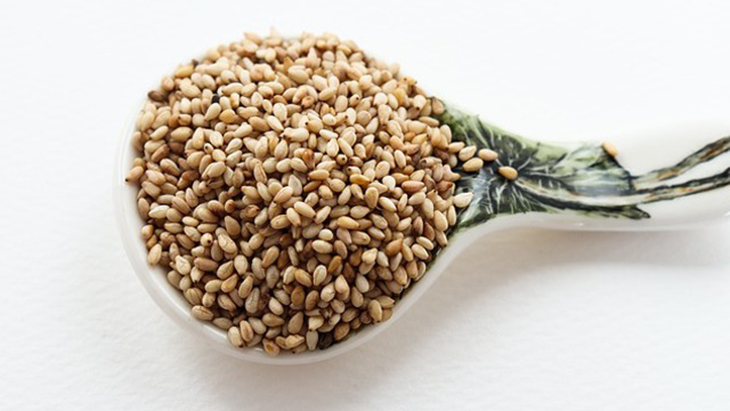
What was otherwise thought to be just a waste product from manufacturing sesame seed oil, which is the sesame seed husks, have been found to be incredibly rich in the antioxidant sesaminol.
But what scientists learned from laboratory cultures taken from an animal model of Parkinson’s disease was that sesaminol actually safeguards the nerve cells from damage, even preventing Parkinson’s symptoms. Of course, further clinical trials are still needed in order to figure out whether this antioxidant has the ability to prevent Parkinson’s, or at least slow the disease’s progression in humans.
In the United States alone, at least 1 million people suffer from Parkinson’s Disease, while another 10 million worldwide have been diagnosed with the disease as well. After Alzheimer’s disease, it is considered as the second most common neurodegenerative disorder.
According to the American Parkinson Disease Association (APDA), Parkinson’s Disease (PD) is described as ‘a type of movement disorder that can affect the ability to perform common, daily activities. It is a chronic and progressive disease, meaning that the symptoms become worse over time.’
The disease affects the dopamine-producing neurons in the brain, which then commonly causes tremors which is a form of rhythmic shaking, as well as causing rigid or stiff muscles, slowing down movement – known as bradykinesia – and even affecting other non-motor movements, causing anxiety, depression, sleep problems, fatigue, constipation and more.
It’s the degeneration and loss of dopamine-producing neurons found in a particular region of the brain – known as the substantia nigra – is what causes the “motor” or movement-related issues that occur in patients that have PD.
Although Parkinson’s has no cure, there are a number of drug treatments that do help alleviate the symptoms that come with PD. The most common medication prescribed by doctors is levodopa (Sinemet), which refreshes or replenishes a patient’s dopamine levels.
According to associate professor at the Graduate School of Human Life Science at Osaka City University in Japan, Dr. Akiko Kojima-Yuasa, said, “Currently, there is no preventive medicine for Parkinson’s disease, we only have coping treatments.”
What was known was that one particular reason for cell loss in the substantia nigra is due to oxidative stress. This is what made Dr. Kojima-Yuasa and team to look into whether the impressive antioxidant sesaminol could actually stop any nerve cell death within the model of Parkinson’s Disease.

Incredibly, an abundance of sesaminol has been found in sesame seed husks, which are basically just a waste product from the ‘industrial extraction of sesame oil.’
Studying Oxidative Damage
What researchers did was use a toxic chemical, known as 6-hydroxydopamine, in order to model that type of oxidative damage that happens to someone with Parkinson’s. The study used the chemical on human nerve cells they had growing in lab cultures, and they saw that ‘the concentration of damaging reactive oxygen species increased, and the cells began to die off.’
By adding sesaminol to the cultures, there was a substantial reduction in the concentration of the reactive oxygen species, while preventing the death of cells as well. The powerful antioxidant seemed to protect the cells from oxidative damage by managing to increase the growth of two protective proteins called NQ01 and Nrf2.
After, the research team went on to test the disease on a standard animal model, mice, by dosing them with neurotoxin rotenone. What occurred was that the toxin lessened the dopamine production in the animals’ brains. This managed to reduce their gut motility, as well as impair their motor abilities, both of which are incredibly common symptoms of Parkinson’s Disease in people. As a matter of fact, people suffering from PD might possibly deal with constipation years before their issues with movements even first occur.
When mice were given a diet that had sesaminol for at least 36 days, they showed higher levels of dopamine while managing to perform better on the standard motor ability tests too. This was also in comparison to the mice control-group that were given a normal diet. And the gut motility in the test group of mice also showed that they were normal.
Furthermore, the mice that were given sesaminol in their diets also had lower levels of alpha-synuclein within their substantia nigras. The alpha-synuclein ‘is a protein that clumps together to form larger structures called Lewy bodies, which are a characteristic feature of neurodegeneration in Parkinson’s.’
The research, which was published in the journal Heliyon, shares what the scientists have concluded. It explains, “Notably, the protective effect was observed with the feeding of a small amount of sesaminol. These resulst show that sesaminol is very suitable for use as a preventive treatment of [Parkinson’s disease]. Further detailed elucidation of the mechanism of action will be necessary for practical application.”
Meanwhile, Dr. Kojima-Yuasa and her group are excited to begin their clinical trials using the sesame seed oil extract. The group also shares that they believe sesaminol could possibly cross the blood brain barrier in humans, which prevents the large molecules and pathogens from entering the brain. But once again, researches claim that more investigations are needed to fully support these findings.
Also, it’s important to understand that the outcome of studies and research from animal models and cell cultures don’t always accurately mirror what happens within the human body.


